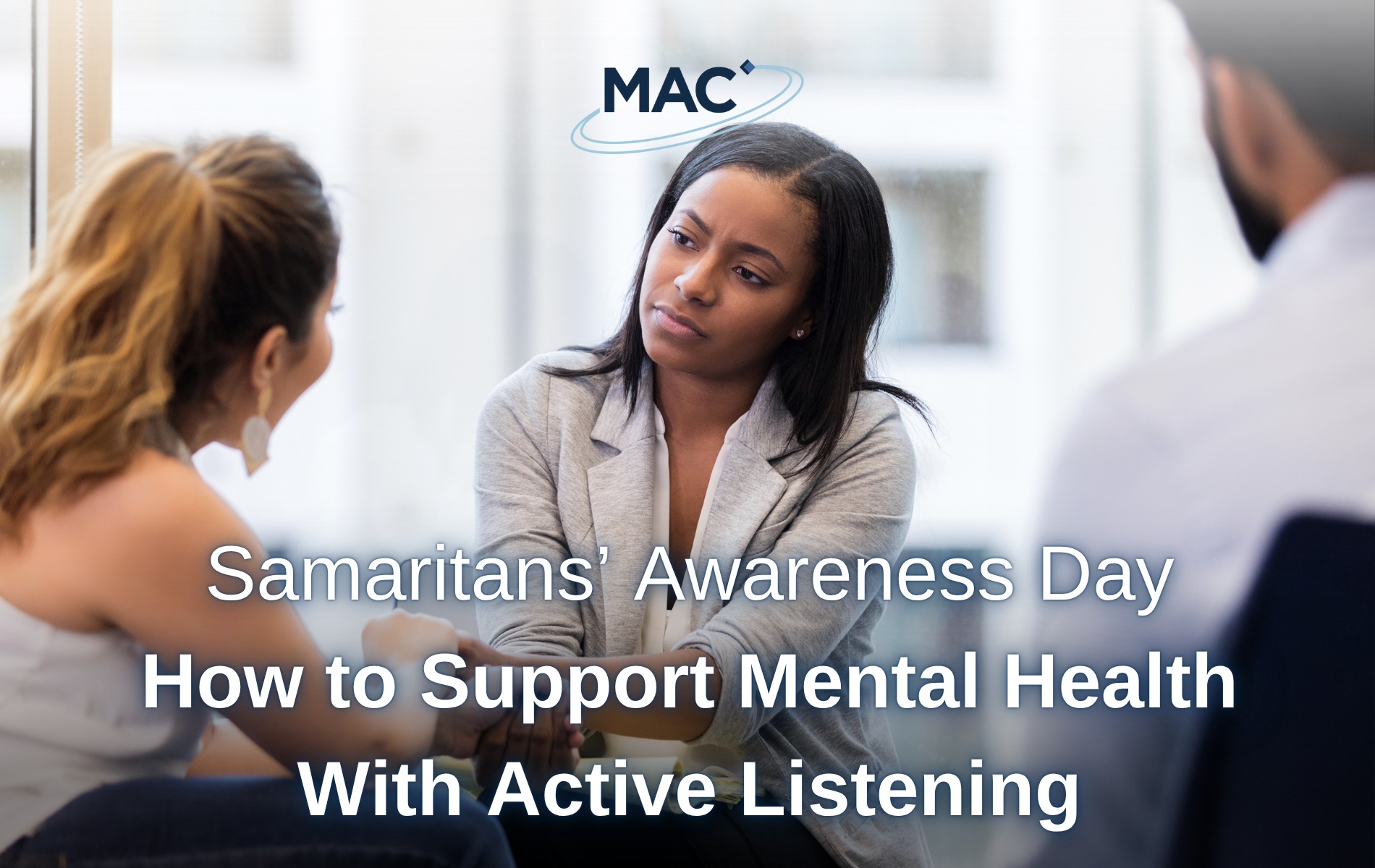Each year the 24th of July marks Samaritans Awareness Day, a day dedicated to raising awareness about mental health and the power of support and listening1. Talking about mental health can be challenging, but listening effectively also takes skill. Active listening is an essential skill needed to create a non-judgemental and safe place for someone to speak about their mental health. This Samaritans Awareness Day, we explore some useful ways you can become a good listener.
Mental Health and Listening
Discussing one’s feelings can serve as a powerful beneficial step to mental well-being. As it:
- Helps individuals to better process emotions
- Makes people feel understood by others
- Reduces the stigma around mental
Samaritan’s Day is all about listening and showing support for mental health and wellbeing. Mental health is as important as physical health and you don’t need to be an expert to talk about mental health or offer support to people in need; however, certain strategies may be useful to become a better listener and support others.
How to being a good listener
1. Active listening
Active listening involves concentrating, understanding, and responding to what people say; this empathetic approach offers a chance for feelings to be recognised and validated. Active listening encourages open communication and creates a safe environment for expression2.
2. Use open-ended questions
Try to avoid asking yes or no questions; instead, offer open questions such as “How have you been feeling today?” Open questions encourage deeper communication and detailed responses, which can lead to more meaningful dialogue2.
3. Positive body language
Positive Body language along with short responses such as “I see” and “What happened next?” reassure individuals that their voice was being heard, and this can be a vital part of active listening3.
4. Allow time for people to open up
Sometimes people may not want to talk about their feelings right away, or they may approach subjects in a dismissive way. It is better to not put pressure on them and allow extra time; wait until they feel comfortable enough to share3.
5. Encourage professional support
While open communication through personal relationships plays a vital role in supporting their mental health, professional support should not be overlooked. Encouraging individuals to seek professional support can provide them with additional resources and coping strategies, and for some mental health conditions, it is important to receive medication help from professionals2.
How MAC supports mental health from a clinical research perspective
MAC Clinical Research has been conducting clinical trials on behalf of the pharmaceutical industry since 1988. MAC has always been driven by a patient-first mentality and listening to the community’s mental health needs. MAC acknowledges that not everyone responds the same to current depression treatments and so are researching into potential new medications.
MAC has contributed to the development of potential new medications for various mental health conditions such as PTSD, anxiety, depression, and social anxiety.
If you choose to take part in a clinical trial with MAC, you will have a comprehensive health check before the trial and be closely monitored throughout.
Looking for new depression treatments?
Depression can be a daily struggle; at MAC we know how hard it can be. We are currently seeking people who have been to their GP with low mood or depression who would like to take part in new studies to evaluate the safety and efficacy of an investigational medication. You will receive between £2495 – £4445 for taking part in depression research (amount dependent upon the study), plus reasonable travel expenses. By taking part in depression research, you may benefit of generations to come! Find out more via our depression study webpage.
References
- Samaritans – Samaritans Awareness Day
- Ena Care Group – Talking and Listening to Promote Better Mental Health
- Mind – Managing Conversations Around Mental Health




